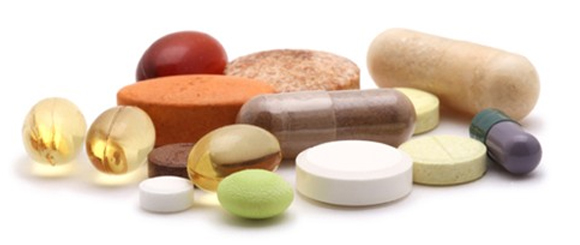Happy Monday!
This week’s post is about a very common but highly debatable topic: supplements. Understanding the vast quantity of the available supplements on the market today, I am not here to write a book about the various research/arguments on every supplement known to man. Instead, I want to value your time in reading this and provide you with practical toolkit, of what I consider to be, the list of “functional” supplements which can be consumed on a daily to improve your fitness performance and boost your overall health. For each supplement, I will list what you need to know, need to do, and where to buy.
First, for overall general health implications here are the top supplements that you should consider (if you haven’t already done so):
Omega 3s:
What you need to know: Omega-3 fatty acids are polyunsaturated fatty acids that are essential nutrients for health. Key benefits include the reduction of inflammation and improvements to the cell membrane in the brain as well as reduction to the risk of developing heart disease, cancer, inflammatory bowel disease, and other autoimmune diseases such as lupus and rheumatoid arthritis. From a weight loss standpoint, omega 3s have been shown to aid in better body composition by reducing cortisol levels (cortisol being a catabolic hormone).
What you need to do: Aim to eat fatty fish a minimum of twice per week but supplement 1000mg/day with quality omega 3 (specifically from sardine/herring/mackerel/krill sources) and look for higher concentrated forms.
Where to buy: All pharmacies and grocery stores.
Vitamin D3
What you need to know: All I have to say is…RDF (rain, drizzle, fog). We all know vitamin D can be absorbed by the body via natural sunlight, however, we live in NL where our sunlight days are quite limited especially during the winter months. Vitamin D helps our bodies absorb and use calcium and phosphorous for strong bones and teeth. Beneficially, vitamin D deficiency has been linked with increased risk of a host of chronic diseases such as osteoporosis, heart disease, some cancers, multiple sclerosis, and infectious diseases such as the seasonal flu.
What you need to do: Choose foods with vitamin D such as certain types of fish, egg yolks and fortified milk. In addition, take anywhere between 1000-2000IU of vitamin D3 supplement per day.
Where to buy: Most pharmacies/grocery stores
Probiotics
What you need to know: Probiotics aid in digestion and support gastrointestinal health by improving your gut microflora and enabling the body to remove toxins more efficiently. In terms of managing weight, we know that probiotics reduce gastrointestinal issues such as bloating/gas/constipation which reduces feelings of lethargy and low energy when looking to exercise. In addition, having a good balance of gut bacteria allows for optimal absorption of key nutrients when eating nutrient-dense foods. Aside from digestive related benefits, probiotics have also been linked with reduction of elevated levels of cholesterol. One study found that implementing probiotics lowered LDL cholesterol (the bad cholesterol) by 12% and total cholesterol by 9%.
What you need to do: Aim to include various strains of healthy bacteria by choosing probiotic-rich foods such as plain unflavoured yogurt, kefir, sauerkraut, miso, pickles, kimchi/kombucha tea and taking a high-concentrated probiotic supplement on a daily basis.
Where to buy: All pharmacies/grocery/health stores
* With respect to taking multivitamins, the journal Annals of Internal Medicine (Dec, 2013), found that multivitamin and mineral supplements did not work any better than placebo pills in terms of reducing risk of heart disease or cancers. However, taking a MV could be considered if heavily deficient in key vitamins/minerals as a result of following a restrictive diet or have poor eating habits. In addition, women who are pregnant and/or breastfeeding should also consider taking a MV because of the folate and iron benefits.
From a training point of view, here are the 2 key supplements you should consider to improve performance, recovery and overall body composition.
Whey Protein (or plant-based protein)
What you need to know: It is widely understood that protein is a key macronutrient when it comes to improving body composition/losing weight and a primary factor involved in muscle building and maintenance. Numerous studies have reported that a diet rich in essential amino acids (i.e., whey protein) improves overall body composition by reducing body fat and preserving lean muscle tissue.
For those of you who have always questioned whey protein, here is the 411. Whey is a by-product during the process of making cheese. Whey is a complete protein meaning it contains all the essential amino acids that we must get through our diet. There is 3 forms of whey that can be created during the process; concentrate, isolate and hydrolysate. In terms of highest quality, you should always aim for whey powders which are primarily made up of isolate and/or hydrolysate as the protein % is much higher and metabolizing during digestion is the fastest as compared to lower quality powders with whey concentrate. In addition, the higher quality whey is virtually lactose free and fat free thus making a great choice for healthy conscious people. Always look for powders (both whey and plant-based) that are sweetened with natural sources like stevia or cocoa beans and are GMO/hormone free.
What you need to do: Aim to consume a protein powder-based shake 1-2 times per day. For those of you who live a busy life and request convenience try including a morning power shake (ingredients can include yogurt, almond milk, whey/vegan powder, veggie greens, frozen berries, chia/flax seeds, nuts, oatmeal, nut butters, etc) in addition to a pre-workout/post-workout shake.
Top brands:Kaizen all-natural isolate whey (what I currently use and can be found at Dominion)
Vega, Kaizen vegan protein or Genuine Health Vegan Protein+ (found in most
health/department/grocery stores)
BCAA
What you need to know: Branched-chain amino acids (BCAAs) are made up of three essential aminos: leucine, isoleucine, and valine. BCAAs make up approximately 40% of the daily requirement of all essential amino acids. They are found in protein-based foods with the highest concentrations in beef, chicken, salmon, eggs and whey protein. In its simplified role, BCAAs help facilitate protein synthesis and inhibit the breakdown of muscle tissue, assist in hormonal balance during high intensity exercise, reduce muscle soreness as a result of intense resistance training, and improve glucose and insulin sensitivity (in healthy individuals).
What you need to do: For optimal training results, take 10-20g of combined BCAAs during or after training to promote enhanced amino acid uptake. (please note that dosages will depend on one’s overall goals).
Where to buy: Most health/grocery store, just look for higher concentrated forms.
I completely understand this is not the “be-all-end-all” list of proven supplements but I just wanted to provide a simple guide listing the essential ones for general health implications and performance enhancement.
I encourage comments / suggestions as to which ones you use and have found to be beneficial to your health or training.
Lastly, I kindly ask that you like my facebook page Wellness By Oz – big thanks!
Train smart but train hard!
Oz

